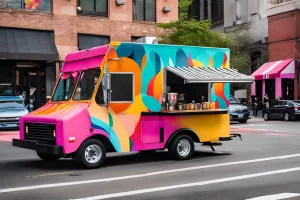The South African banking scene is buzzing with change! HSBC is stepping away, leaving its clients and assets to FirstRand Bank, which is excited to grow its reach in Africa. Meanwhile, Old Mutual is jumping in with OM Bank, set to launch in 2025, bringing fresh ideas to the financial world. This lively shakeup means new chances and challenges for banks, making the future of banking in South Africa look bright and full of possibilities!
Kempton Park Hospital, once a bustling hub of healthcare in Gauteng, now sits in eerie silence after being abandoned for nearly 30 years. What was once filled with life has turned into a ghostly reminder of what could have been, with its crumbling walls attracting curious explorers and vandals alike. Recently, the Gauteng Department of Health is looking for private partners to breathe new life into this forgotten space, hoping to transform it into a valuable community resource again. If successful, this revival could ease the strain on nearby hospitals and spark a wave of renewal in the area. The hospital’s journey from decay to revitalization embodies the spirit of hope and the potential for change in urban spaces.
Airlink’s Expansion Elevates African Air Travel: New Routes to Beira, Dar es Salaam, and Gaborone
Airlink is making air travel in Africa exciting by adding new flights! They now have daily flights from Johannesburg to Beira and a Saturday flight to Dar es Salaam. Plus, starting in April 2025, there will be direct flights from Cape Town to Gaborone. These new routes mean more adventures and easier travel for everyone, whether for business or fun. With Airlink’s expansion, exploring Africa is easier and more connected than ever!
South African business schools are shining on the world stage, with UCT’s Graduate School of Business and Wits Business School earning high praise. UCT GSB is now among the top 100 MBA programs globally, while Wits excels in specialized master’s degrees like the Master’s in Management. These schools are not just about business skills; they also focus on creating leaders who care about social issues. With their beautiful campuses and strong programs, they are preparing students to tackle future challenges and make a positive impact in their communities.
The South African Post Office is in big trouble, facing a financial disaster known as “Day Zero,” where it might run out of money soon. Poor management and a failure to keep up with modern technology have left it struggling against faster, smarter competitors like Paxi and PUDO. As SAPO’s services slow down, customers are turning away, putting thousands of jobs at risk. Although all hope isn’t lost, the Post Office needs to act quickly, team up with other companies, and innovate to survive in a world that demands speed and reliability.
In October 2024, SASSA grants will see small increases for the Older Persons Grant, Disability, War Veterans, and Childcare Dependency Grants, while Child Support and Foster Care grants will stay the same. Many people are worried, as these unchanged grants struggle to keep up with rising costs of living. The slight increases might help a little, but they are not enough for families facing tough times. Personal stories, like that of Thandi raising her grandchildren and John, a war veteran, show the real struggle behind these numbers, highlighting the urgent need for more support.
South Africa and the United States are looking forward to a bright future in business together. South Africa wants to attract $100 billion in investments over the next five years, focusing on exciting areas like green energy. President Cyril Ramaphosa shared this vision at a big meeting in New York, highlighting how important partnerships are for both nations. With strong support for clean energy and a commitment to growth, South Africa is ready to shine on the global stage, inviting US businesses to join in this journey of shared success and prosperity.
Africa’s critical minerals are treasures that can power the world’s shift to green energy. With 30% of these minerals found in SubSaharan Africa, they can spark jobs and boost the economy if processed locally. South Africa is leading the way, aiming to turn its mineral wealth into sustainable growth while ensuring fairness for its people. By teaming up with the U.S. and focusing on responsible mining practices, Africa hopes to create a brighter future filled with opportunity and innovation.
Cape Town is taking exciting steps to boost its economy by creating 142 special areas for mobile businesses, like food trucks and barber shops. This plan, guided by a new Mobile Business Policy, aims to help these businesses grow and connect with the community. The city welcomes public feedback, encouraging residents to share their thoughts and ideas until October 2024. By blending old traditions of mobile trade with modern needs, Cape Town is shaping a vibrant commercial landscape that benefits everyone and celebrates creativity and connection.
In New York, South African President Cyril Ramaphosa met with billionaire Elon Musk, hoping to attract his investment to South Africa. This meeting was exciting for many, especially with the upcoming launch of Musk’s Starlink internet service, which promises to improve internet access across the country. Ramaphosa’s presence at the UN and his talks with business leaders show his commitment to boosting South Africa’s economy. The anticipation for Starlink is a symbol of hope, inspiring many South Africans to dream big and believe in their potential for success.
South Africans have a special bond with certain brands that go beyond just buying products; they are part of their daily lives and culture. Brands like CocaCola, Marmite, and Sunlight soap hold a cherished place in homes, sparking feelings of nostalgia and shared memories. Even though some of these brands come from far away, they have been embraced as local favorites, showing how global influences can blend beautifully with South African traditions. This unique loyalty reveals the deep connections people have with the things they use every day, turning them into symbols of community and heritage.
Cape Town is excited about its future, especially in the Central Business District (CBD). The city has a new plan called the Local Spatial Development Framework (LSDF) that aims to make the CBD more friendly and lively for everyone. With input from residents, the plan focuses on better transportation, keeping cultural treasures, and creating affordable housing. By working together, Cape Town hopes to build a vibrant place where all people can enjoy life and thrive.
Several prominent corporations, including Saudi Aramco, Abu Dhabi National Oil, and Trafigura, are competing for the purchase of Shell’s South African service stations, which are worth nearly a billion dollars. This intense competition reflects a wider trend among trading companies, who are investing in oil’s downstream businesses due to declining cargo trading margins. The acquisition of retailers holds a strategic advantage, ensuring a steady demand for their fuels. The outcome of this contest will shape South Africa’s petroleum retail sector, highlighting the dynamic nature of the global petroleum industry.
The salary of the AuditorGeneral is decided by the President and approved by the National Assembly, following a cost of living adjustment. A Standing Committee on the AuditorGeneral examined and endorsed the proposed salary increase for the fiscal years 2023/24 and 2024/25, recognizing the President’s authority and considering it a fair adjustment. This process highlights the importance of maintaining financial responsibility and clarity in government activities and shows the dedication to safeguarding the financial welfare of those who serve our democracy, demonstrating the functioning of a sturdy and financially fair democratic establishment.
South Africa’s energy sector is waiting anxiously for a crucial briefing by Minister Gwede Mantashe on TotalEnergies’ exit from offshore gas exploration blocks. The briefing will shed light on the inner workings of resource development, the business viability of offshore gas exploration in South Africa, and the legislative decisionmaking mechanism in the country. The meeting’s outcomes will be pivotal in shaping South Africa’s energy scene and influencing future decisions on resource development and economic strategy.
The Common Monetary Area (CMA) will undergo a momentous shift from September 9, 2024, as South African banks will no longer process Electronic Funds Transfer (EFT) payments and collections within the region due to regulatory deficits. The move aims to align the region’s financial practices with international antimoney laundering standards, enhance detection of such activities, and empower regulatory authorities. To further safeguard customers, financial institutions will also need to change their approach to handling debit orders, marking another significant adjustment in the region’s financial landscape.

















